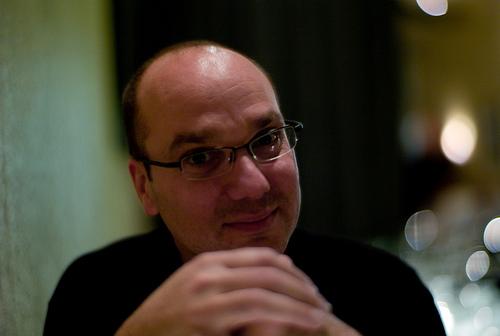
Today the New York Times had an opportunity to sit down with Andy Rubin, VP of Engineering at Google and one of the founders of the Android platform, to discuss "everything Android." The topics of discussion ranged from the battle between Google and Apple to Chrome OS and Flash support for Android, and back to the Google/Apple war.
The author of the article tagged Android as "Google's primary weapon" in the the war between two of the nation's largest technology-focused organizations. And whether you agree or not, from the tone of the conversation it would seem that Rubin believes the real weapon is openness. When a question about whether consumers actually care about open or closed platforms arose, Rubin said “When they can’t have something, people do care. Look at the way politics work. I just don’t want to live in North Korea,” presumably referring to the closed nature of Apple's product line.
As the conversation progressed, the topic of support for Flash - an important topic for Android enthusiasts - came up and Rubin promised that Froyo (Android version 2.2) would fully support Flash, stating that being open "means not being militant about the things consumer are actually enjoying." Once again, Rubin was probably hinting at Apple's unwillingness to work with Adobe to bring Flash to the iPhone or iPad, despite the public outcry for the standard.
Rubin also touched briefly on the subject of Android versus Chrome OS, and mentioned that the two operating systems each represent different purposes. When asked if Chrome and Android tablets would co-exist, Rubin said, "I don’t know if there will be Chrome and Android tablets, but if a consumer walks into [a] store and two of those tablets are my company’s choices, I’m all good.”
As the interview came to a close, the NYT reporter joked with Rubin about the recent "lost/stolen iPhone" debacle, stating that the PR rep who had joined Rubin wanted him to "confess that he had left a prototype Android phone at a local bar." To that Rubin replied, "I’d be happy if that happened and someone wrote about it, with openness comes less secrets.”
If it wasn't clear before now, openness is the key to success in the eyes of Andy Rubin, though I can't help but remember a certain someone saying (when referring to the lack of native multitouch on US Android devices) "I personally don't like two-handed operations." What about us Andy? What about us?
Via Bits